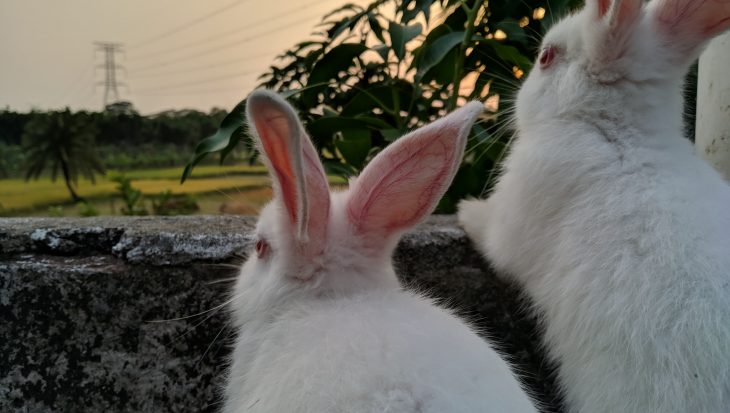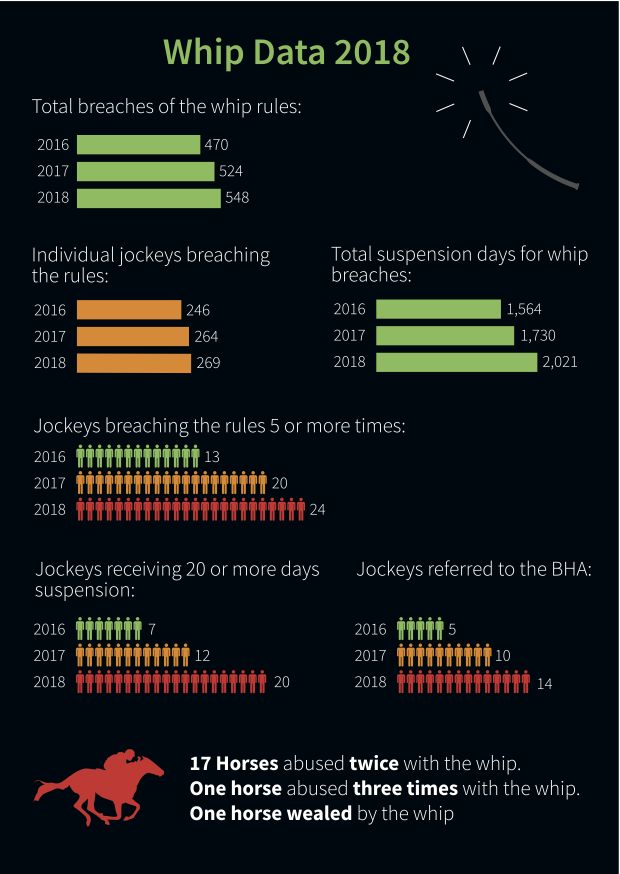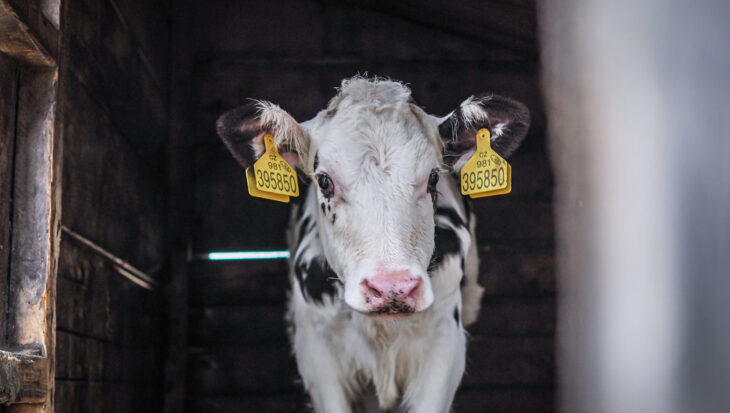For the last three years the number of breaches of the whip regulations in British racing has risen – as has the number of jockeys breaking the rules, the number of jockeys being referred to the British Horseracing Authority (BHA) and the number of days’ suspension handed out to jockeys.
In 2018, there were 548 breaches of the whip by 269 jockeys, compared with 524 breaches by 264 riders in 2017. In 2016, Animal Aid recorded 470 breaches by 246 jockeys, making 2018 the third year in a row that the number of breaches and the number of jockeys breaking the rules has risen.
The research comes as the BHA has begun a review into the use of the whip in racing – although the regulator has made it clear that it doesn’t see the whip as a welfare issue[1], despite the level of public opposition to its use. In a 2018 YouGov poll, 68% of respondents said they opposed the use of the whip in racing. When only including those who expressed a view, this figure rose to 83%.[2]
[1] https://www.thetimes.co.uk/article/british-horseracing-authority-to-review-whip-sanctions-p968kd8mh
[2] https://www.animalaid.org.uk/wp-content/uploads/2016/07/whipbriefing.pdf
The YouGov poll sample size was 2106 GB adults, with the fieldwork undertaken between 29th March -2nd April 2018. The survey was carried out online. The figures have been weighted and are representative of all GB adults (aged 18+).
Respondents were asked for their reaction to the following statement: ‘The racing industry says that whips are used on horses for safety and encouragement. Those against the use of whips on horses say they cause pain to horses and are used most often in the final stages of a race to bully horses to run to their physical limit. To what extent do you support or oppose the use of the whip in horse racing?’



